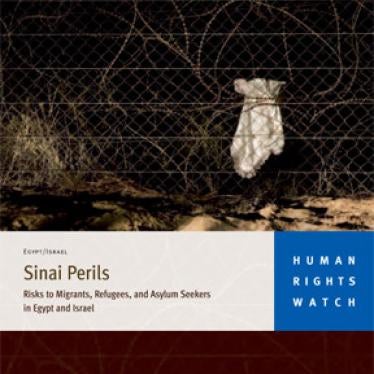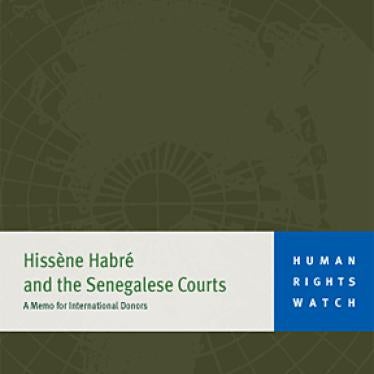(Dakar) - A Senegalese court announced that it would render a decision on June 15 on the exiled dictator of Chad, Hissein Habre, who has been indicted here on torture charges.
"We're glad that the court is going to take the time to carefully study the law, because under the law Senegal is obliged to bring Habre to justice," said Reed Brody, advocacy director of Human Rights Watch, one of the organizations which initiated this case. "We're confident that we're going to win."
Lawyers for Habre and for the victims who brought the case, as well as the state prosecutor, presented arguments behind closed doors to Dakar's three-judge Indicting Chamber on Habre's request to dismiss the case. The victims' lawyers, led by Boucounta Diallo, noted that the "no safe haven" provision of the 1984 United Nations Convention against Torture, which Senegal ratified in 1986, expressly obliges states to either prosecute or extradite alleged torturers who enter its territory. Under the Senegalese constitution, international treaties, once ratified, override Senegal's legal code.
The Torture Convention was the basis for Britain's detention of Gen. Augusto Pinochet for crimes committed in Chile. Habre's lawyers argued that Senegal has no jurisdiction over crimes committed in Chad and that the prosecution is barred by the statute of limitations.
The victims' lawyers also stressed that according to Senegalese law, the 10-year statute of limitations for serious crimes only began when prosecution became possible after Habre fell from power in December 1990. The case was initiated in Dakar in January 2000, less than 10 years later.
"Today you can't commit atrocities in one country and then claim sanctuary next door," said Brody.
Local groups expressed disappointment that the state prosecutor had taken Habre's side in today's debate but stressed that Senegal's international credibility was at stake. "Today, we reminded the judges that by ratifying the Torture Convention, Senegal promised that it would not be a refuge for torturers," said Alioune Tine of the Dakar-based African Assembly for the Defense of Human Rights (RADDHO). "That's a promise that I am sure the judges will take seriously."
In February, Judge Demba Kandji of the Dakar Regional Court indicted Habre on torture charges, and placed him under house arrest.
On Monday, Judge Kandji, whose investigation is continuing, heard the testimony from Mahamat Hassan Abakar, the president of Chad's truth commission, which spent 15 months probing Habre's crimes. The commission, which interviewed 1,726 witnesses, estimated that Habre's forces killed 40,000 Chadians.
The court also heard from three former detainees who were mistreated in Habre's jails. Antoine Kenoue Tchoungre told Judge Kandji that in December 1987 he was subjected to electric shock torture while Habre looked on.
The victims also announced that 53 Chadian victims had joined the original seven plaintiffs in the action against Habre. In addition, one Frenchwoman whose Chadian husband was killed by Habre's regime as well as the Chadian Association of Victims of Political Repression and Crime (AVCRP), which represents 792 victims of Habre's brutality, are represented in the case.
Habre, 57, took power in Chad in 1982, overthrowing the government of Goukouni Wedeye. Habre's one-party regime, supported by the United States and France, was marked by widespread abuse and campaigns against the ethnic Hadjerai (1987) and the Zaghawa (1989). Habre was deposed in December 1990 and has lived in Senegal since.







